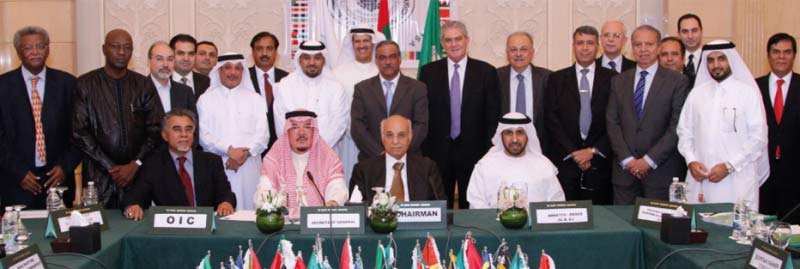
Organization of Islamic Shipowners Association was set up to serve Islamic Ummah in maritime transportation field according to the Third Summit Conference of the OIC countries held in Makkah Al-Mukarramah in 1981. The efforts of the Organization is to enhance trade exchange and cooperation among Islamic countries in the field of maritime transport and to increase mutual cooperation among them. So that the maritime transport is considered to be one of the main arteries of communication between the various economic activities around the globe, who contribute to the transfer of about 90% of the movement of goods around the globe.
OISA OBJECTIVES:
The objectives and functions of the Organization of the Islamic Shipowners Association (OISA) have been one of the most important basic clauses of its Statute as they are considered to be the strong element in explaining the objectives of establishing the Association and the means of fulfilling these objectives. Article V of Section II of the Statute of the Organization of the Islamic Shipowners Association has defined the Association objectives and functions as under:
The Association aims at coordinating and unifying the efforts of the Members in realising cooperation among the maritime companies with the purpose of advancing maritime transport of the Member States and utilising to the maximum the potentials of the fleets of their companies for protecting the interest of the Members by providing sound counsel and supporting them with greater voice in international maritime affairs as well as connecting the Islamic world and foreign countries in an integrated maritime network.
Reason:
A number of reasons prompted and encouraged the officials in the Islamic countries to study the feasibility of establishing the Organization of the Islamic Shipowners Association. These reasons, strictly speaking, include:
- Making the Association one of the factors for economic linkage and for expanding and strengthening economic cooperation among the Islamic countries.
- Attempting to lift the blockade and overcome the monopoly to which the Islamic countries and ships are subjected by the foreign countries and companies in the area of shipping.
- Making efforts among the Islamic countries for establishing and consolidating their rights in the area of sea transport and freight at the international level.
- Developing trade and transport among the Islamic countries by opening scopes for investment and trade exchange through shipping.
- Coordinating and unifying the efforts of the members in realizing cooperation among the shipping companies.
- Protecting the interests of the Islamic countries through supporting them with greater voice in international shipping affairs.
- Creating a sort of cultural and social attachment as well as augmenting the ties between the various Islamic societies.
- Employing as many Islamic ships as possible in the trade and transport traffic between these countries thus employing Islamic labor and utilizing to the maximum its available potentials and capabilities.
